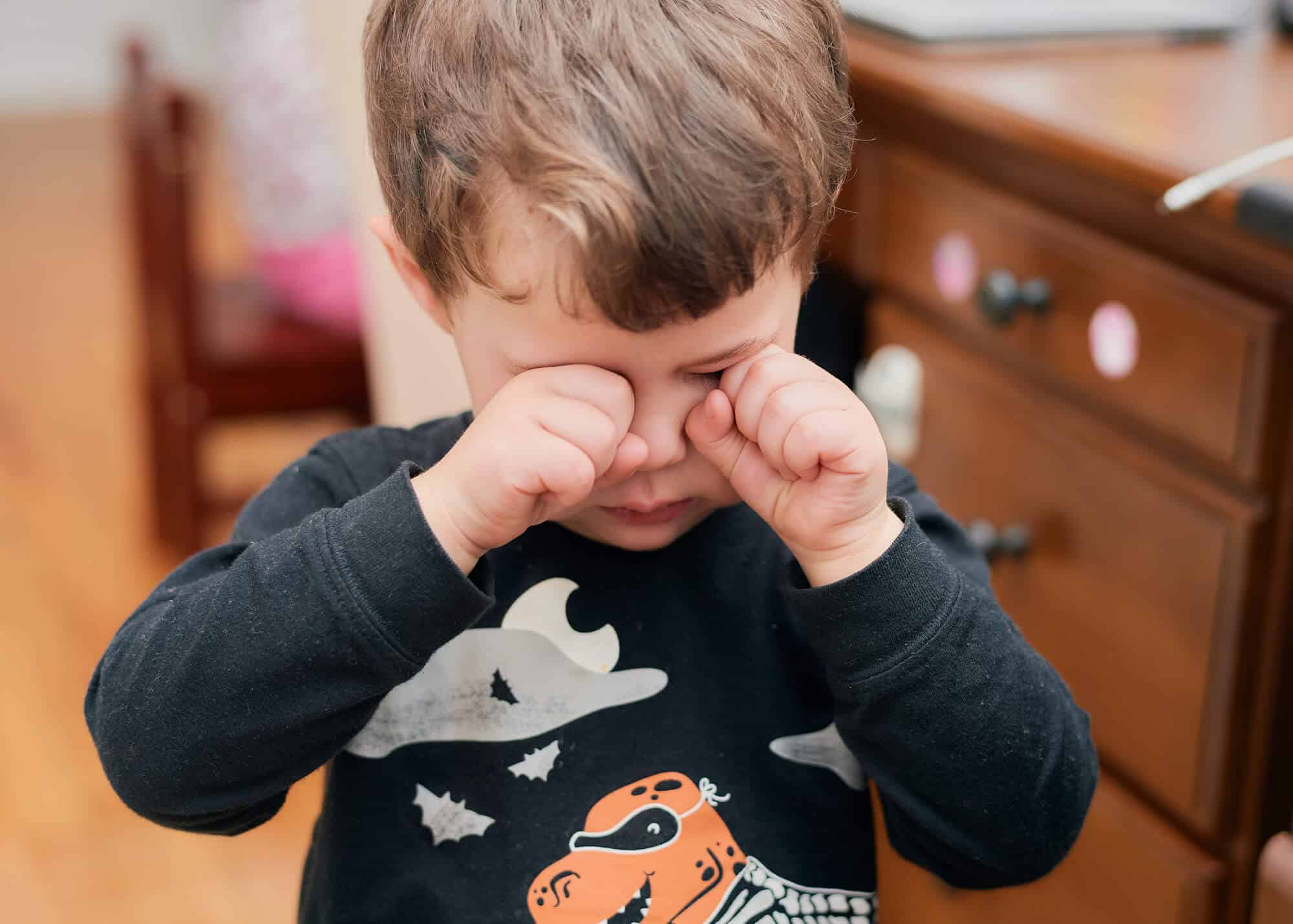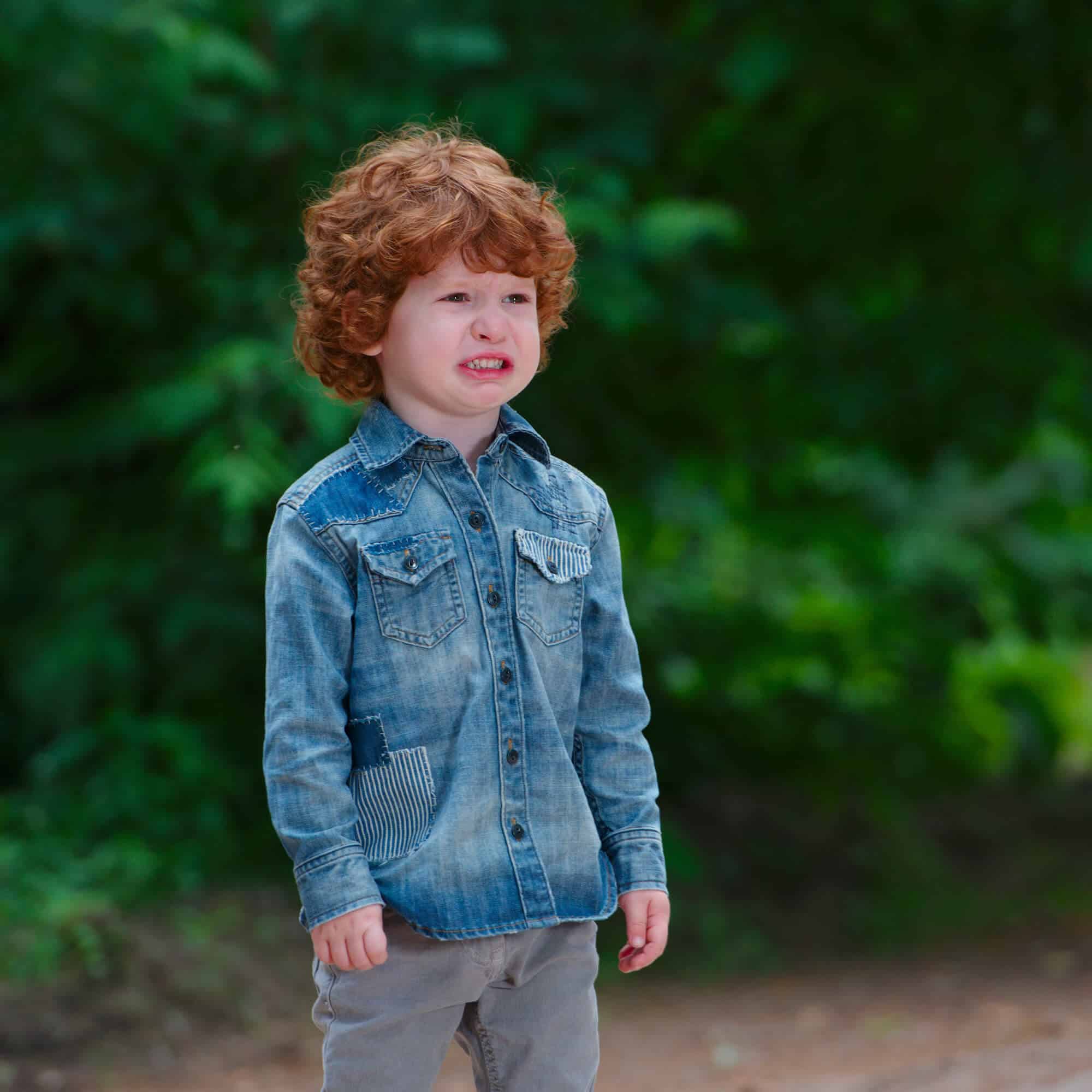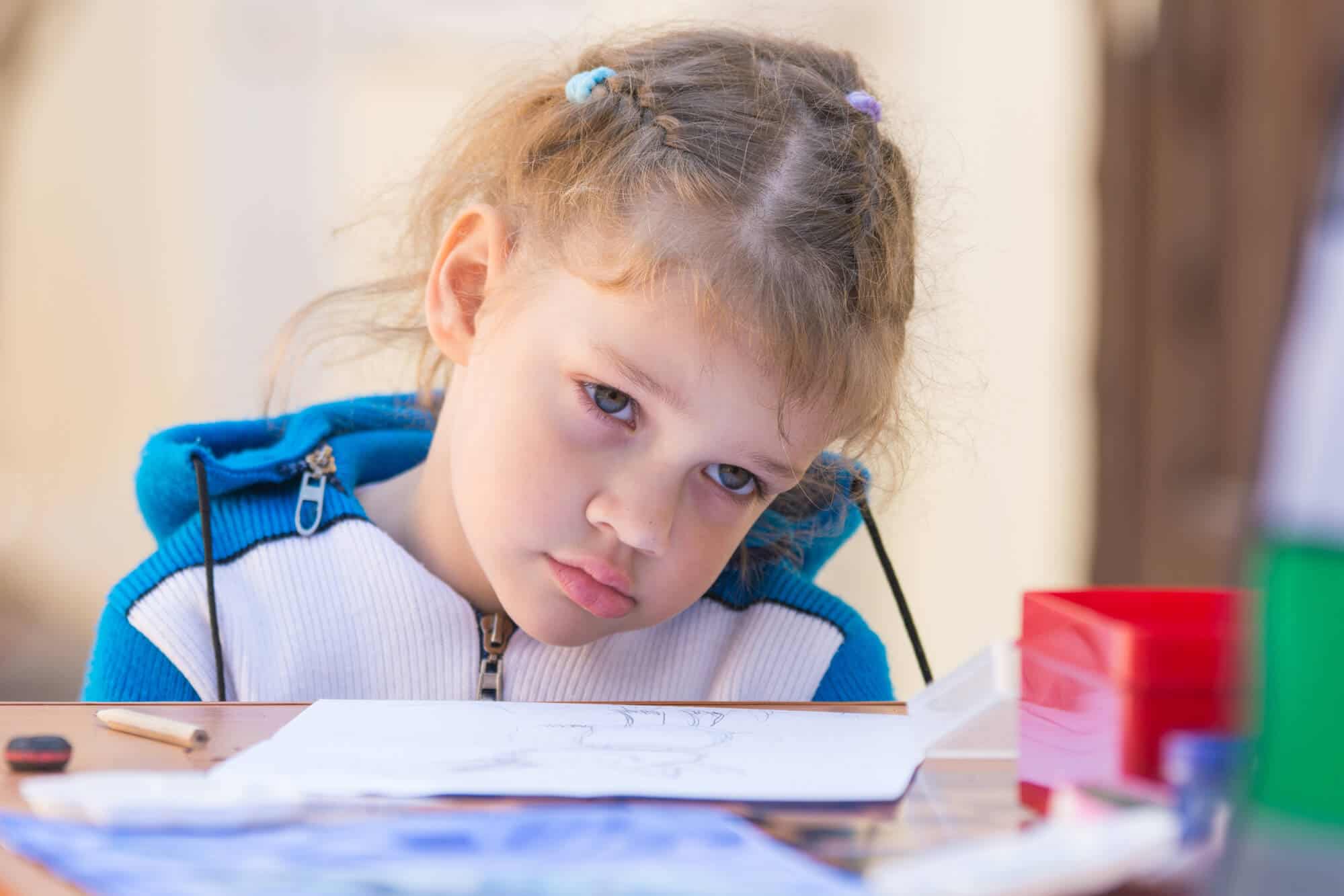Sneak peek: Toddler whining (or even among older kids) is one of those universal parenting challenges that parents lament. Ideas for understanding whining in toddlers and how to cope.
When your child was an infant, their cries would, no doubt, spur you to act like nothing else. For a parent, the sound of their baby crying ignites something in your nervous system that you previously never knew existed.
Now that your child is a toddler, the crying has probably subsided a bit. But a new vocalization from your child may be taking its place – whining. While perhaps not as action-provoking as crying, whining is equal parts annoying and somehow impossible for most parents to ignore.
Is the onset of whining in the early childhood years inevitable? Why is it almost impossible to ignore whining from your child? Can you do anything to limit or curtail whining in your child? Understanding toddler development and this phase of whining can help make your parenting days a little easier.

Why Whining Happens
Toddlerhood often has a reputation for being a challenging stage of parenting. This stage comes with its own joys and challenges. Toddlerhood is a very unique stage because it includes two aspects of development that do sometimes seem to conflict with one another. Toddlers are just beginning their strive toward independence. They are beginning to see themselves as unique individuals, separate from their parents. The typical toddler phrase, “me do it” sums up this stage well.
Related reading: Toddlers Have Big Emotions. Insights from Research on How to Respond
At the same time, toddlers are still very dependent on their caregivers for many things. They still need help feeding themselves (or at least preparing the food), going to the bathroom, getting dressed, etc. Thus, while their strive for independence is strong (and natural), their state of dependence on adults is still very real. This can pose a conflict at times. They often really want to do a task or skill on their own, but in reality, they still need help.

These developmental factors are combined with toddlers’ newly discovered language skills. Toddlers are in the midst of a language explosion. They often learn new words each day. With these new words, comes new power. They can now ask for what they need or want.
You would think these increasing language skills would mean that toddlers would need to whine less, not more. However, while they are getting more skilled with language, their ability to manage their emotions remains quite immature. Therefore, while they may have the words to ask for what they want, they may not have the emotional regulation skill to be able to manage their emotions when they don’t receive the requested item.
All these factors together set the scene for an increase in whining during the toddler years. The reason that your child may continue to whine, even when you ask them not to is simple – it works. This doesn’t mean you are doing anything wrong. Toddler whining tends to work on you (and most parents) because of some inherent biological factors that you have little control over.
Why Do Toddlers Whine?
Whining is characterized by a high-pitched or varied pitch sound, often louder or more energetic than normal speech. Similar to crying, this type of sound has been found to gain the attention of adults (especially parents) at a much higher rate than other vocalizations. One study even found that whining attracted more attention from adults than crying.
Although you might try your hardest to ignore your child’s whining or direct your attention to something else (your work task or chore at hand), biologically your ears are wired to notice the sound of whining. Does that mean that as a parent to a toddler you are destined to have whining as part of your life until your child matures out of this phase? Not necessarily. You can help your child learn to communicate their needs in ways that don’t involve whining (or at least less whining).

Tips to End Toddler Whining
Realistically, there isn’t a magic switch to turn off whining in your child. As your child matures and learns other ways to communicate their needs, typically the whining decreases. You can help this process along by how you interact with them.
- Be an Emotion Coach. Toddlers often still struggle with expressing their emotions in words. You can help! Try to understand and vocalize the emotion they are trying to express. Are they angry, frustrated, tired, etc? Help give them the language to express this in terms other than whining – “are you sad because we have to leave the park?” or “You seem frustrated because you can’t open that toy.” Over time, this will help them learn to express their emotions more effectively.
- Rephrase. Young children may not even recognize that they are whining. If you think your child is old enough to understand differences in tone of voice, ask them kindly to repeat their request in a normal (or powerful) voice. Sometimes you can try making a game out of this. Perhaps encourage them to ask the request in their big, strong superhero voice or their favorite silly character voice. It takes some practice for young children to understand this but they will get the hang of it eventually.
- Connect. It’s hard to feel emotionally connected with your child when they are whining but try to remember they are just expressing a need. Of course, the candy at the checkout counter is not really a need. However, their whining may come from a deeper need to have their emotions heard and validated. This doesn’t mean that you have to “give in” to their request but you can still offer a hug, or remind them that you love them, even if they don’t get what they want.
- Positive Reinforcement. When your child does ask for something with a polite, non-whiny voice, be sure to offer praise or some type of positive reinforcement to let them know. For example, “I love how nicely you asked for that toy. That was so kind.” Over time, this will help them understand the difference between whining and asking in a more polite voice.
Toddler whining, while developmentally typical, can be extremely frustrating. Now that you understand why it happens, you will be prepared to cope with it more effectively. With a few tweaks to your interactions, you can help your toddler learn to communicate in new ways with less whining.

Leave a Reply